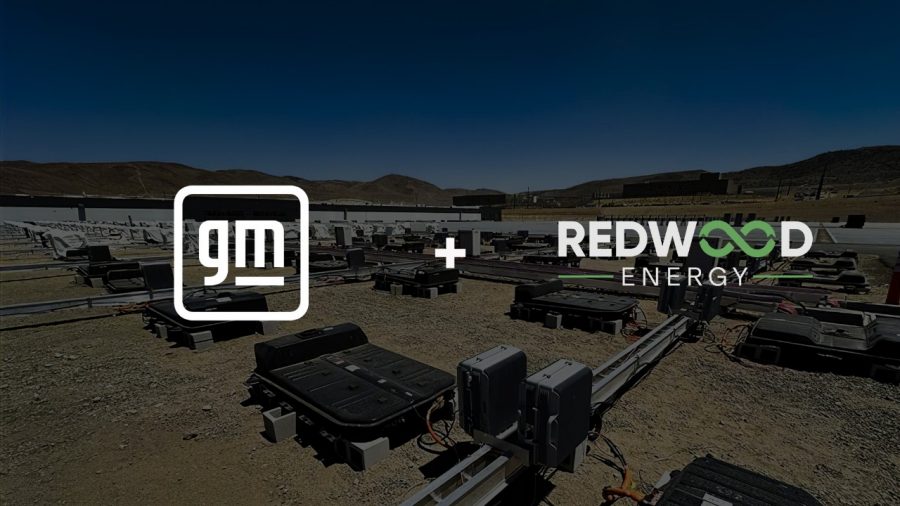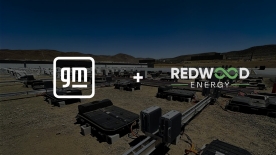General Motors has signed a non-binding memorandum of understanding with Redwood Materials meant to accelerate deployment of energy storage systems using both new U.S.-manufactured batteries from GM and second-life battery packs from GM electric vehicles.
This collaboration marks a significant step toward taking GM’s advanced battery technology beyond EVs and builds on GM and Redwood's existing collaboration.
“The market for grid-scale batteries and backup power isn’t just expanding, it’s becoming essential infrastructure,” said Kurt Kelty, VP of batteries, propulsion, and sustainability at GM. “Electricity demand is climbing, and it’s only going to accelerate. To meet that challenge, the U.S. needs energy storage solutions that can be deployed quickly, economically, and made right here at home. GM batteries can play an integral role. We’re not just making better cars - we’re shaping the future of energy resilience.”
In June, Redwood Materials launched Redwood Energy, a new business that deploys both used EV packs and new modules into fast, low-cost energy-storage systems built to meet surging power demand from AI data centers and other applications. The memorandum announced today enables Redwood to pair that integration expertise with both second-life GM EV packs and new U.S.-built batteries, delivering a domestic solution from cell to system.
Already, GM second-life electric vehicle batteries are being repurposed to help power the largest second-life battery development in the world and the largest microgrid in North America, at Redwood’s 12MW/63MWh installation in Sparks, Nevada, supporting the AI infrastructure company Crusoe.
“Electricity demand is accelerating at an unprecedented pace, driven by AI and the rapid electrification of everything from transportation to industry,” said JB Straubel, founder and CEO of Redwood Materials. “Both GM’s second-life EV batteries and new batteries can be deployed in Redwood’s energy storage systems, delivering fast, flexible power solutions and strengthening America’s energy and manufacturing independence.”
U.S. electricity demand continues to grow, driven in part by AI data centers that are on track to triple their share of national electricity usage from 4.4% in 2023 to 12% by 2028. As power consumption increases, there’s an expanding need for energy storage systems that can act to offset power outages and reinforce the grid when demand is high or supply is limited.
GM and Redwood Materials expect to announce more details on their plans later in 2025.
Cautionary Note on Forward-Looking Statements: This press release and related comments by management may include “forward-looking statements” within the meaning of the U.S. federal securities laws. Forward-looking statements are any statements other than statements of historical fact and represent our current judgment about possible future events. These statements are not guarantees of any future events or financial results, and our actual results may differ materially due to a variety of factors, many of which are described in our most recent Annual Report on Form 10-K and our other filings with the U.S. Securities and Exchange Commission. We caution readers not to place undue reliance on forward-looking statements. Forward-looking statements speak only as of the date they are made, and we undertake no obligation to update or revise any forward-looking statements, whether as a result of new information, future events, or other factors that affect the subject of these statements, except where we are expressly required to do so by law.
About General Motors
General Motors (NYSE:GM) is driving the future of transportation, leveraging advanced technology to build safer, smarter, and lower emission cars, trucks, and SUVs. GM’s Buick, Cadillac, Chevrolet, and GMC brands offer a broad portfolio of innovative gasoline-powered vehicles and the industry’s widest range of EVs, as we move to an all-electric future. Learn more at GM.com.

